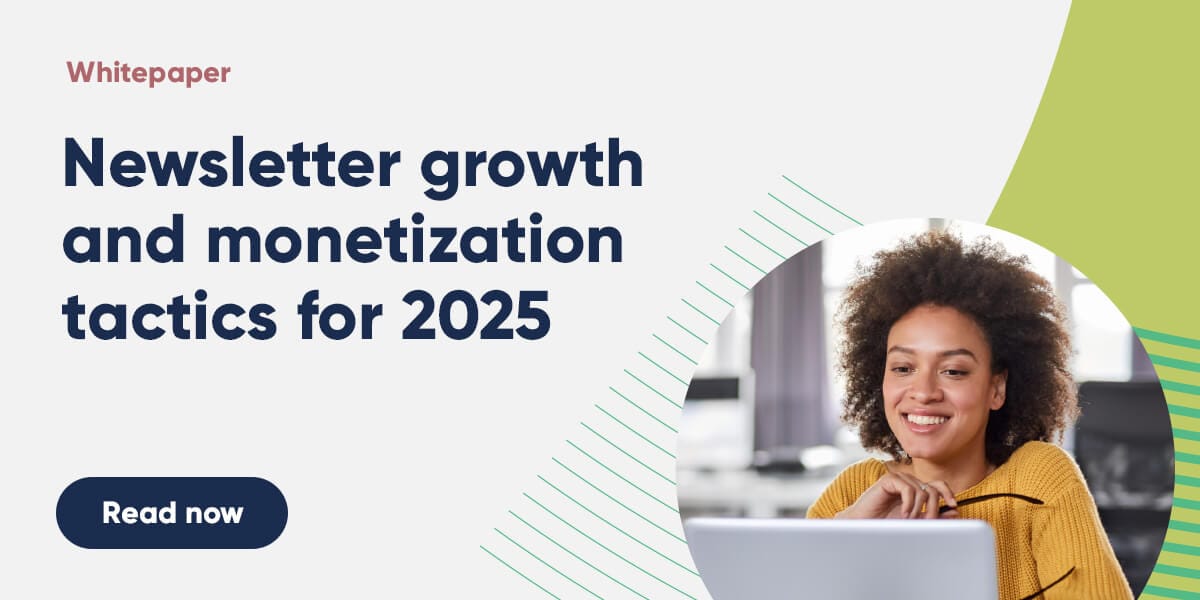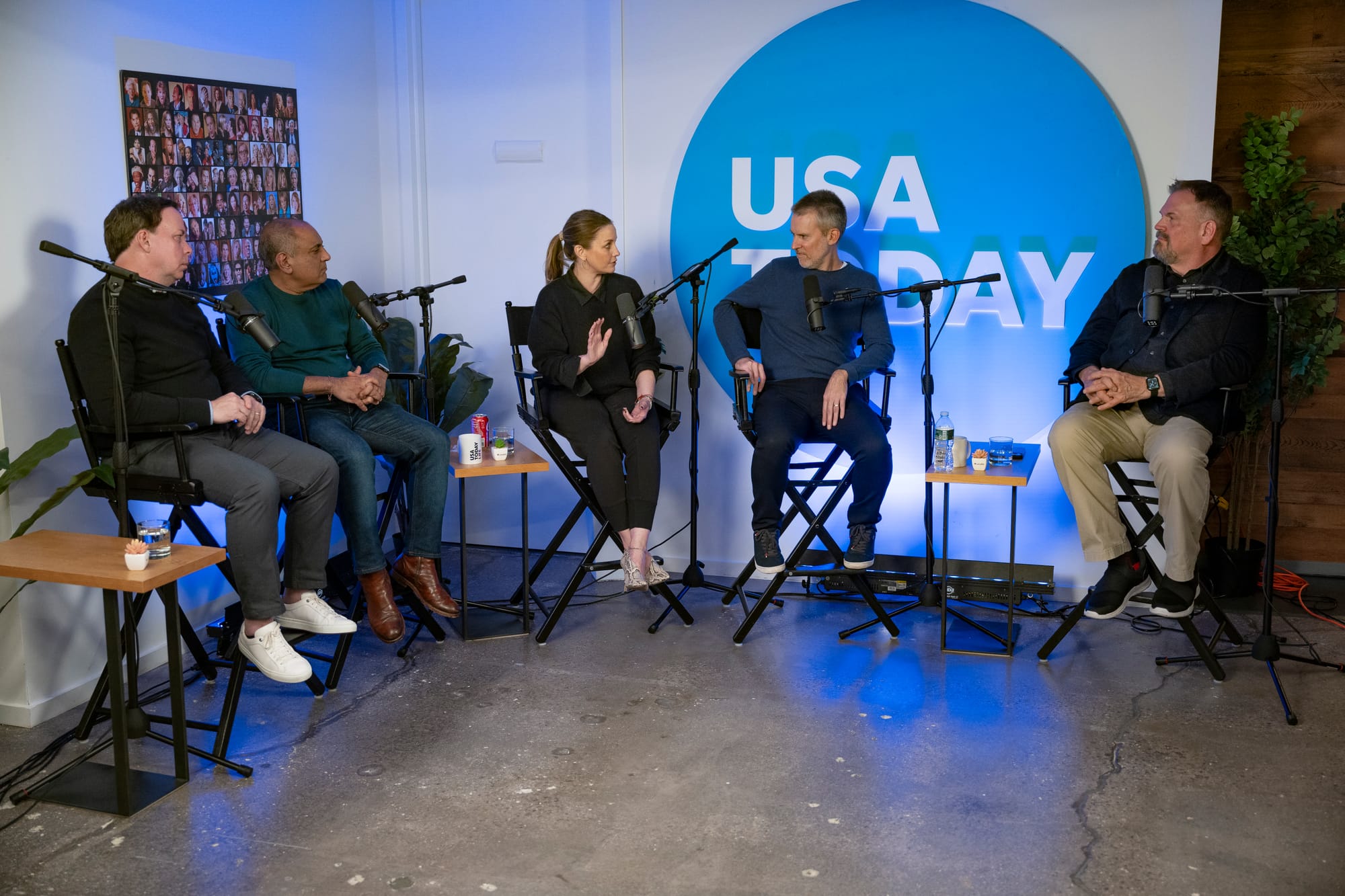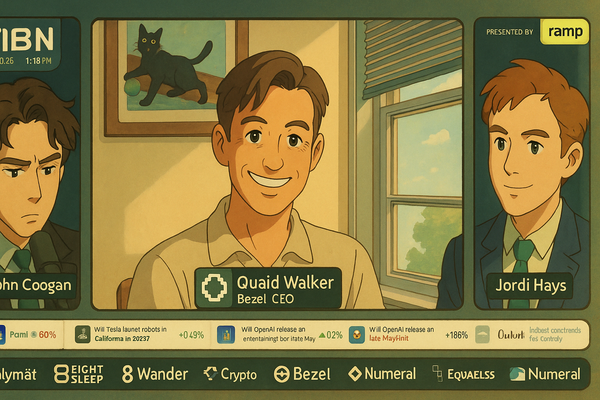How Gannett is adapting for an AI era
Plus: mainstream media's rough end to the year

Thursday’s edition will be the finale of the year for The Rebooting. Thanks so much for reading and listening to podcasts, attending virtual and in-person events, downloading reports and more. I’ll have a wrap-up edition on Thursday with my trendlines for the coming year – I don’t do predictions since I once said the next MySpace will look more like Second Life – and some thoughts on year four of building a business. Today:
- A live podcast conversation with Gannett executives about how it is building for an AI era
- Why video is where publisher silos come together
- Mainstream media’s rough end to the year

Newsletter growth and monetization tactics for 2025

In this white paper, learn how to drive more income from your newsletter, from using first-party data more effectively to generating income through subscriptions & premium content, & see how you can reach your newsletter growth goals with Omeda’s integrated audience data platform.
How Gannett is adapting for an AI era

Last Tuesday, we held a live recording of The Rebooting Show at Gannett’s NYC headquarters. I was joined in a group conversation by Imtiaz Patel, chief consumer officer; Kristin Roberts, chief content officer; Jason Taylor, chief sales officer; and Renn Turiano, chief product officer. Some highlights from the discussion:
Rethinking the article page.The traditional building block of news is growing tired. There’s a time and a place for an inverted pyramid 700-word news article, but reaching audiences now means push notifications, newsletters and SMS alerts.
User experience needs to change. Like most publishers, Gannett needs to balance monetization opportunities with hits on user experience. That means alignment internally among executives that giving a premium experience will come before squeezing every last penny out of programmatic.
AI and subscriptions. Gannett is implementing dynamic paywalls and using AI for propensity modeling to optimize subscription offerings. Importantly, subscriptions are not seen as some kind of savior. There’s undoubtedly a measure of subscription fatigue setting in with consumers. Ultimately, bundles will re-emerge. Plus: Gannet sees opportunities in alternative revenue streams, such as content licensing, a wine club and vertical subscription products.
Google is frustrating. Something I’ve noted in many of my conversations over the year: publishers are exasperated with Google’s constantly shifting algorithm changes and policies. Gannett is one of the few publishers that have seen traffic expand, but the unreliability of what was once the most reliable form of distribution for publishers reinforced the imperative to develop direct audience relationships.
AI companies are a lot like Uber. I liked this analogy. Uber took over markets with unsustainably cheap fares that made using a taxi an IQ test. Once it controlled the market, the prices went up and and up. I have regularly seen $100 fares to go a mile at nights in NYC. The same could play out with AI answer engines like Perplexity that for now are a far better experience but will eventually need to make money That will come through either steep fees or a lot of ads.
Get the full episode on Apple | Spotify | other podcast platforms
The Rebooting’s State of Publisher Video Strategies report, done in collaboration with EX.CO, surveyed 49 media companies to understand how they balance the tradeoffs between user experience and the added monetization benefits of video on article pages. One of our findings was that video is an area where editorial, revenue and product converge. Get the full report.
Mainstream media’s bad end to a bad year
I’ve spent the past four days under attack from an evil unleashed on my organism by a dodgy oyster. Talk about a rough end to the year.The mainstream news media is having its own bad-oyster moment to close out 2024.
ABC News surprisingly settled a defamation case against it over George Stephanopoulos referring to Trump being found “liable for rape” when the jury verdict stopped short of that and found Trump sexually abused E. Jean Carroll. It was a ticky-tack case that I’d think would be difficult to meet the high bar of “actual malice.” But clearly ABC didn’t want the discovery to take place. Go through everyone’s emails and Slacks, you’ll find good material. The fact that Stephanopoulos was able to smoothly transition from being a Clinton apparatchik to journalist was always curious.
Meanwhile, CNN is on the road to retraction of a too-good-to-check discovery by Clarissa Ward of a “hidden prisoner” in a Damascus jail. It made for great TV. Almost immediately on X, the entire affair was knocked down. The rescued “prisoner” looked pretty fit and somehow kept his nails neatly trimmed in the dungeon. Turns out the rescued prisoner might have been an Assad intelligence officer. I don’t believe something like X will replace mainstream news, but it will be a complement and check on it.
Even being responsible can come off as being patronizing. It took Ken Klippenstein to publish Luigi Mangione’s manifesto on Substack. News outlets had the document. They would quote from it but not publish it in full. I can understand this approach, yet I don’t think that kind of paternalistic approach will fly in the current moment.
None of this is going to rebuild trust. And it might be too late. MSNBC and CNN’s ratings have tanked. I don’t see a path where that changes, and a paywall strategy is hardly going to make CNN more relevant. The manosphere strategy pulled off by Trump will be repeated. Next year is going to be the year of alternative media, which will grow at the expense of mainstream media.
Thanks for reading. Send me a note with feedback by hitting reply.




